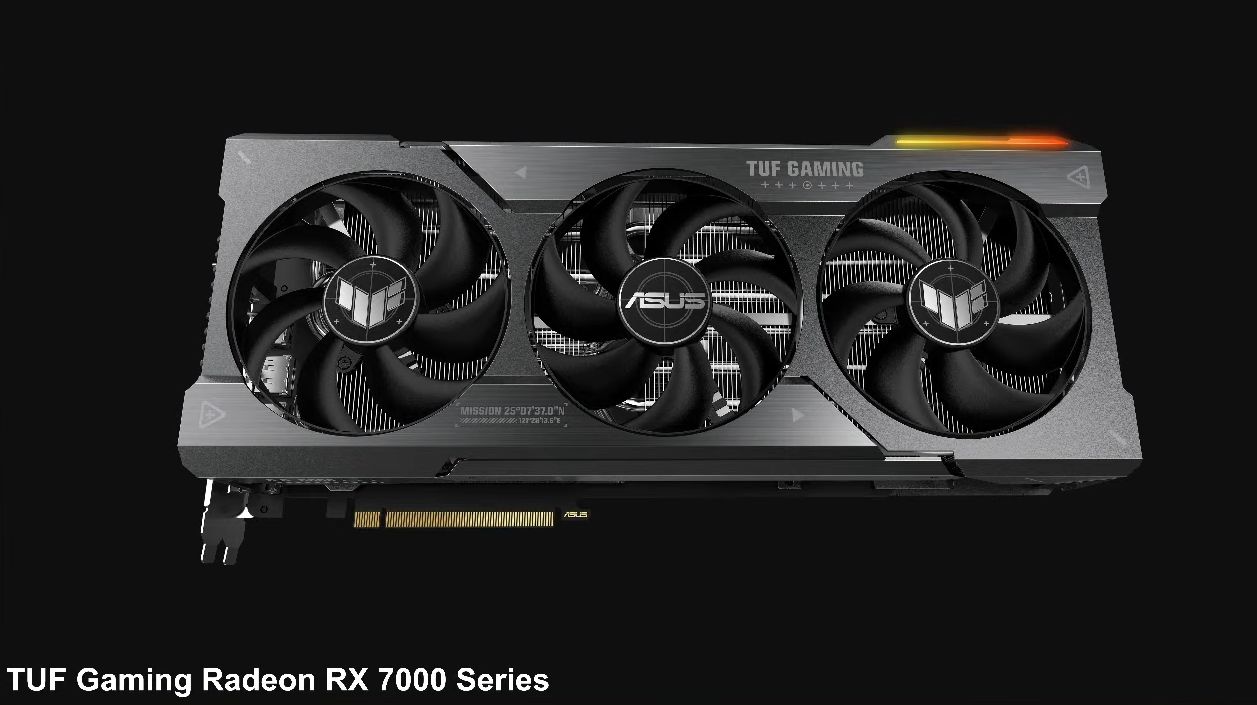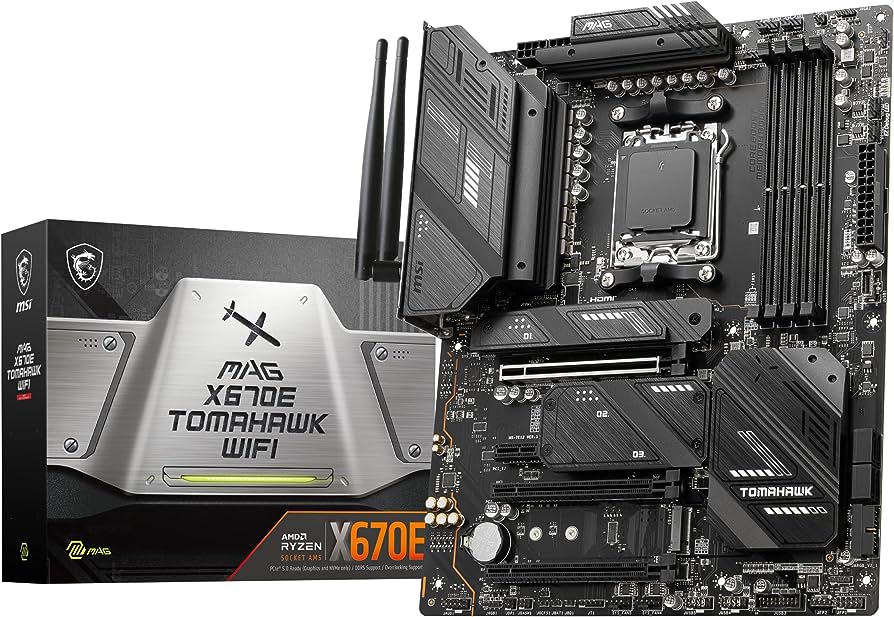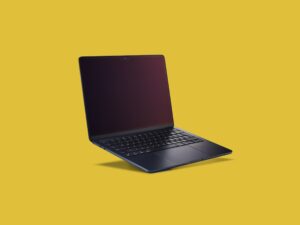No, a motherboard typically won’t turn on without RAM. RAM is essential for the system to boot and perform basic functions.
Without it, the system will not boot up and the computer will not operate. However, if you attempt to turn on the motherboard without RAM, you may experience beeping sounds, a blank screen, or error messages. In this case, you should install the necessary RAM to ensure proper functionality.
It is important to always ensure that the RAM is securely installed in the motherboard to avoid any issues with startup and system operation.

Credit: www.amazon.com
What Is A Motherboard?
A motherboard is the central component of a computer. It is a physical arrangement that connects other essential components, such as the CPU, memory, storage, and other essential hardware. The motherboard is responsible for facilitating communication between these components and ensuring that the computer operates smoothly. Without a functioning motherboard, a computer would not be able to function, making it a vital element in any computer system.
Components Of A Motherboard
The motherboard contains various critical components that are essential for the proper functioning of a computer. Some of the key components found on a motherboard include:
- CPU socket
- Memory slots
- Expansion slots
- Chipset
- BIOS
- Power connectors
- USB headers
Importance Of Ram
RAM, or Random Access Memory, plays a crucial role in the performance of a computer. It serves as the temporary storage space for data that the CPU needs to access quickly. Without an adequate amount of RAM, a computer may become sluggish and struggle to handle multiple tasks simultaneously. RAM ensures that applications run smoothly and data is processed efficiently, making it an essential component for overall system performance.
The Role Of Ram In A Motherboard
RAM is a crucial component of a motherboard, and without it, the motherboard will not turn on. It is essential for storing and accessing data in real-time, enabling your computer to function properly.
What Is Ram?
Ram, which stands for random access memory, is a vital component of a motherboard. It is a form of computer memory that can be accessed randomly, allowing data to be written and read in any order. This makes it much faster than other forms of storage such as hard drives or SSDs.
Purpose Of Ram In A Motherboard
The primary role of RAM in a motherboard is to store data and instructions that are actively being used by the computer. When a program is running, its data is temporarily stored in the RAM, allowing the CPU to access it quickly. Without enough RAM, the system may slow down, as it would need to rely more heavily on slower forms of storage.
Will A Motherboard Turn On Without Ram?
RAM, or Random Access Memory, is a crucial component of a computer system. It is responsible for storing and accessing data that the processor needs to run applications efficiently. However, there may be instances when you wonder if a motherboard can turn on without RAM. Let’s explore this question further by looking at what happens when RAM is not installed and whether a motherboard can function without it.
What Happens When Ram Is Not Installed?
When RAM is not installed on a motherboard, the system will not be able to boot up properly. The absence of RAM means there is no place for the CPU to store and retrieve data during operations. As a result, the motherboard will be unable to complete the POST (Power-On Self-Test) process, which checks the system’s hardware components before loading the operating system.
Without RAM, the computer cannot access the necessary instructions and data to start up, causing it to halt. You may experience symptoms such as beeping sounds or an error message on your monitor, indicating the absence of RAM.
Can A Motherboard Function Without Ram?
No, a motherboard cannot function without RAM. As mentioned earlier, RAM is an essential component that the motherboard relies on for data access and storage. Without RAM, the motherboard cannot fulfill its role of facilitating communication between various hardware components.
While the motherboard houses the CPU, graphics card, and other essential components, it requires RAM to complete the circuit. The absence of RAM disrupts the flow of data and prevents the system from functioning properly.
Therefore, it is vital to have compatible and functional RAM modules installed on your motherboard for the system to turn on and function correctly. The type and capacity of RAM supported by your motherboard will depend on its specifications.
Now that you understand the importance of RAM for a motherboard, it is essential to ensure that you have the appropriate RAM configuration for your computer system. Upgrading or replacing faulty RAM modules may be necessary to maintain the smooth performance of your system.

Credit: www.reddit.com
The Surprising Truth
Have you ever wondered if a motherboard can turn on without RAM? It might seem like a strange concept, but the answer might surprise you. In this article, we’ll explore the surprising truth behind whether a motherboard can power up without RAM. But before we dive in, let’s first understand the role of BIOS.
The Role Of Bios
BIOS, short for Basic Input/Output System, is a vital component of a motherboard. It serves as the firmware that initializes the system hardware and prepares the computer for operation. The primary function of the BIOS is to allow the operating system to communicate with the hardware components, ensuring smooth functionality.
However, when it comes to turning on a motherboard without RAM, the role of BIOS becomes particularly interesting.
How A Motherboard Responds Without Ram
Contrary to popular belief, a motherboard can power up without RAM modules. When you press the power button, the motherboard’s power supply and other components, such as the CPU and GPU, receive the necessary electricity to start the system. The BIOS, being an essential part of this process, detects the absence of RAM modules.
So, what happens next?
The BIOS, upon detecting the absence of RAM, usually produces a series of beeps or other audible cues to indicate that there is no memory installed. This is known as a “RAM error beep code” and acts as a warning for the user to check their RAM configuration.
Without RAM, your computer won’t boot into the operating system, as RAM plays a crucial role in storing and accessing data required for the computer’s operation. Furthermore, the absence of RAM limits the system’s ability to run applications and efficiently perform tasks.
In conclusion, while a motherboard may power up without RAM, its functionality remains severely limited. RAM is an essential component in a computer system, and without it, the motherboard can’t perform its duties effectively.
Implications And Considerations
Without RAM, a motherboard won’t boot up. The RAM is crucial for the computer’s operation. Failure to install it will prevent the system from turning on. This consideration is important when building or troubleshooting a computer.
Effects On System Performance
When it comes to the topic of motherboard functionality, RAM plays a crucial role. It is a well-known fact that a motherboard will not turn on without RAM. But what are the implications of this? Let’s explore the effects on system performance and why it is so important to install RAM properly.
RAM, or Random Access Memory, is an essential component of any computer system. It serves as temporary storage for data that your computer needs to access quickly. Without RAM, the motherboard will not be able to perform its duties effectively, as it relies on this component for efficient data processing.
The absence of RAM can lead to significant repercussions on system performance. Not only will the computer fail to power up without RAM installed, but it will also be unable to execute any tasks efficiently.
Imagine trying to run multiple applications simultaneously or working on resource-intensive tasks without ample memory. The lack of RAM will ultimately result in sluggish performance, frequent freezes, and frustrating delays. This can be especially problematic for tasks that involve multimedia editing, gaming, or complex software development.
To put it simply, the impact of not having RAM installed is similar to trying to drive a car without enough fuel. It becomes virtually impossible to achieve optimal performance and efficiency.
Importance Of Installing Ram
The importance of installing RAM correctly cannot be overstated. It is not only necessary for the proper functioning of the motherboard, but it also directly affects overall system performance.
Installing sufficient RAM allows your computer to run smoothly, ensuring that it can handle multiple tasks simultaneously and minimize delays. With more memory, your system will be better equipped to manage data effectively, improving both speed and efficiency.
Furthermore, having adequate RAM can prevent bottlenecks and optimize your computer’s performance. When your system has insufficient memory, the operating system compensates by relying heavily on virtual memory, which is essentially a portion of your hard drive acting as temporary memory. However, this is significantly slower than RAM, leading to a noticeable drop in performance.
In addition, installing RAM in the correct configuration is vital. Placing RAM sticks in the wrong slots or using mismatched modules can result in compatibility issues and reduced performance. It is essential to consult your motherboard’s documentation or consult with a professional to ensure proper installation.
In conclusion, without RAM, a motherboard cannot function optimally or turn on at all. It is crucial to install sufficient RAM and place it correctly to avoid any negative impact on system performance. Remember, RAM is the fuel that powers your computer, so make sure it is installed properly for a seamless computing experience.

Credit: videocardz.com
Frequently Asked Questions Of Will Motherboard Turn On Without Ram
Can A Motherboard Turn On Without Ram?
No, a motherboard cannot turn on without RAM. The RAM (Random Access Memory) is an essential component that the motherboard relies on to boot up and function properly. Without RAM, the motherboard will not have the necessary resources to carry out basic operations.
What Happens If You Turn On A Motherboard Without Ram?
If you attempt to turn on a motherboard without RAM, it will not be able to complete the boot process. The motherboard relies on the RAM to load the operating system and handle various tasks. Without RAM, the system will not have the necessary memory resources, resulting in a failure to start.
Can I Damage My Motherboard By Running It Without Ram?
Running a motherboard without RAM is highly discouraged, as it could potentially cause damage to the system. Without the RAM modules installed, the motherboard will lack the necessary memory resources and may have difficulty functioning correctly. It is best to always have RAM installed before attempting to power on a motherboard.
Conclusion
To conclude, it is crucial to understand that a motherboard cannot turn on without RAM. The RAM module is essential for the motherboard to function properly by providing the necessary memory for the system to operate. Without RAM, the motherboard lacks the ability to execute commands and handle data, rendering it unable to power on.
Therefore, always ensure that your motherboard is equipped with the necessary RAM for seamless computer operation.



